Chosen Family, Chosen Name, Separatist, Safe Space, Expat, Invert, Homophile, Homestead
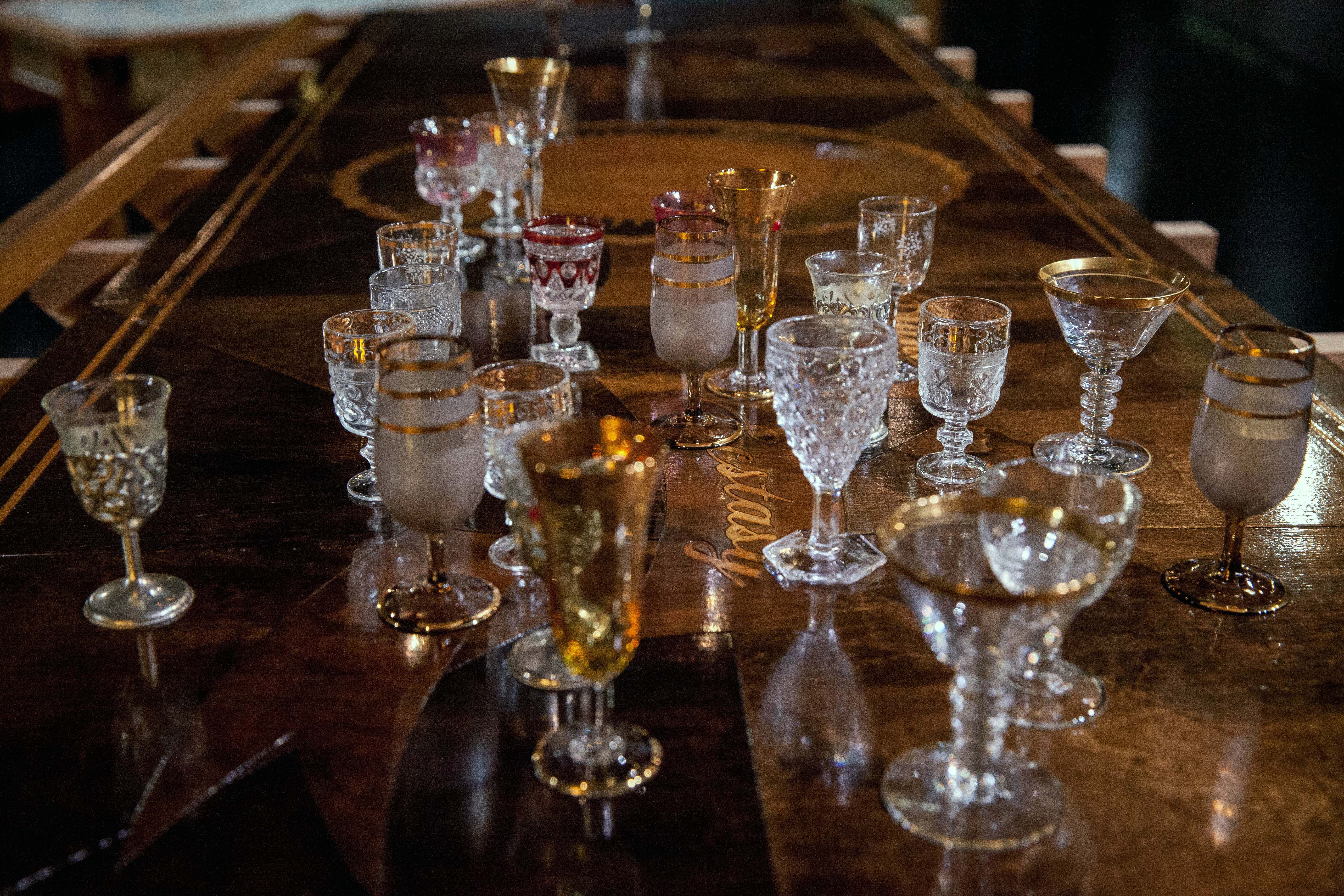
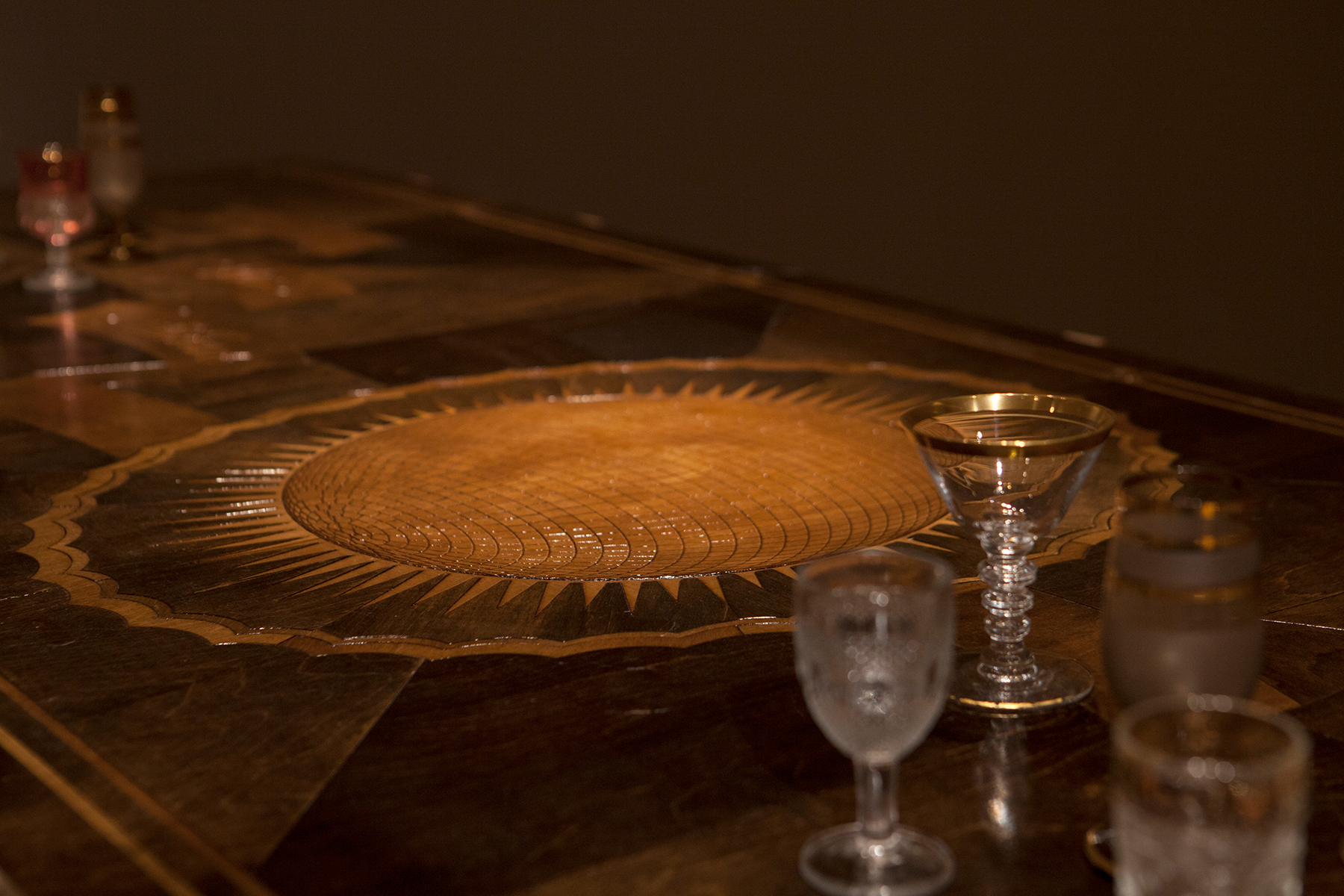
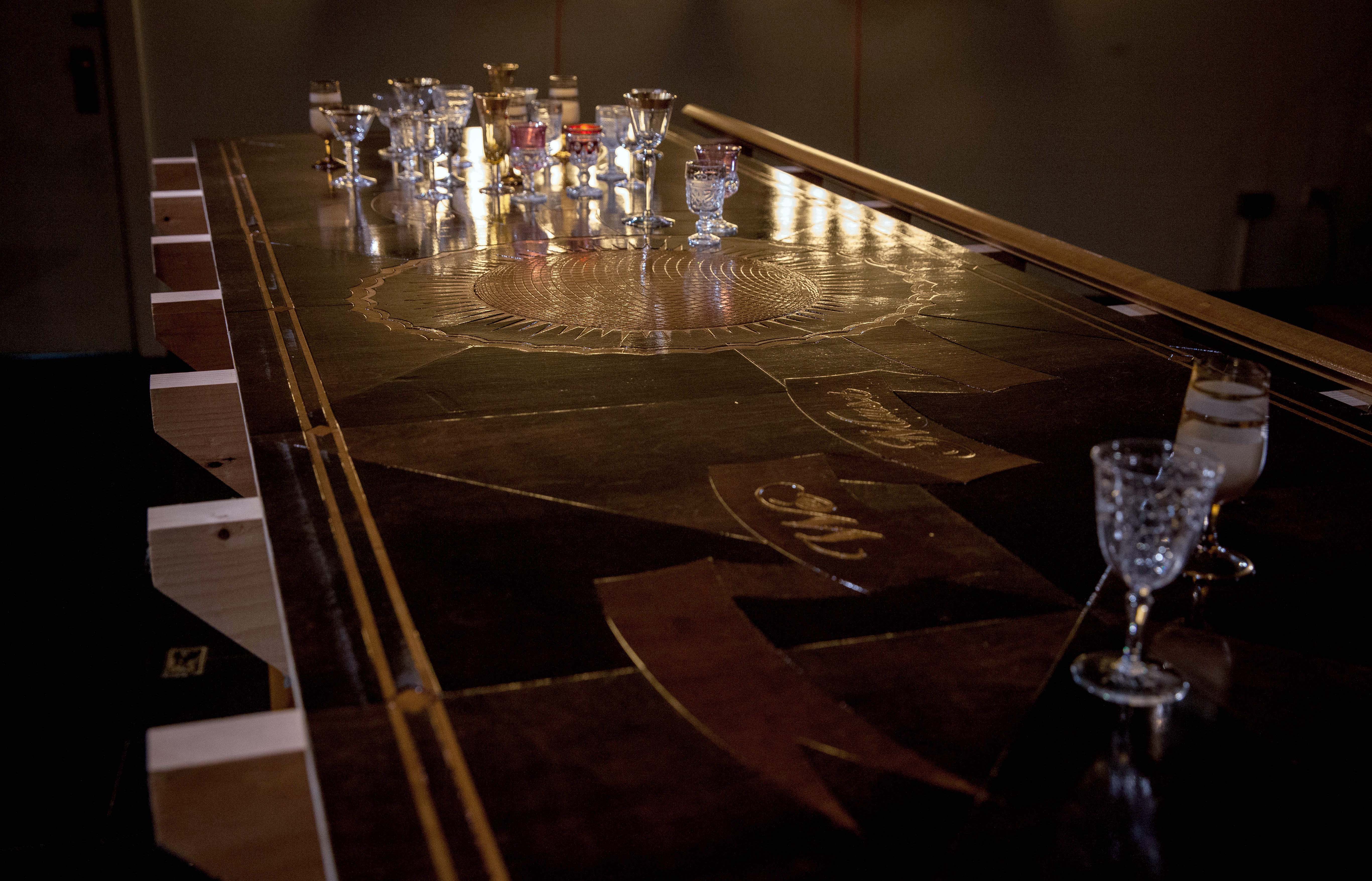
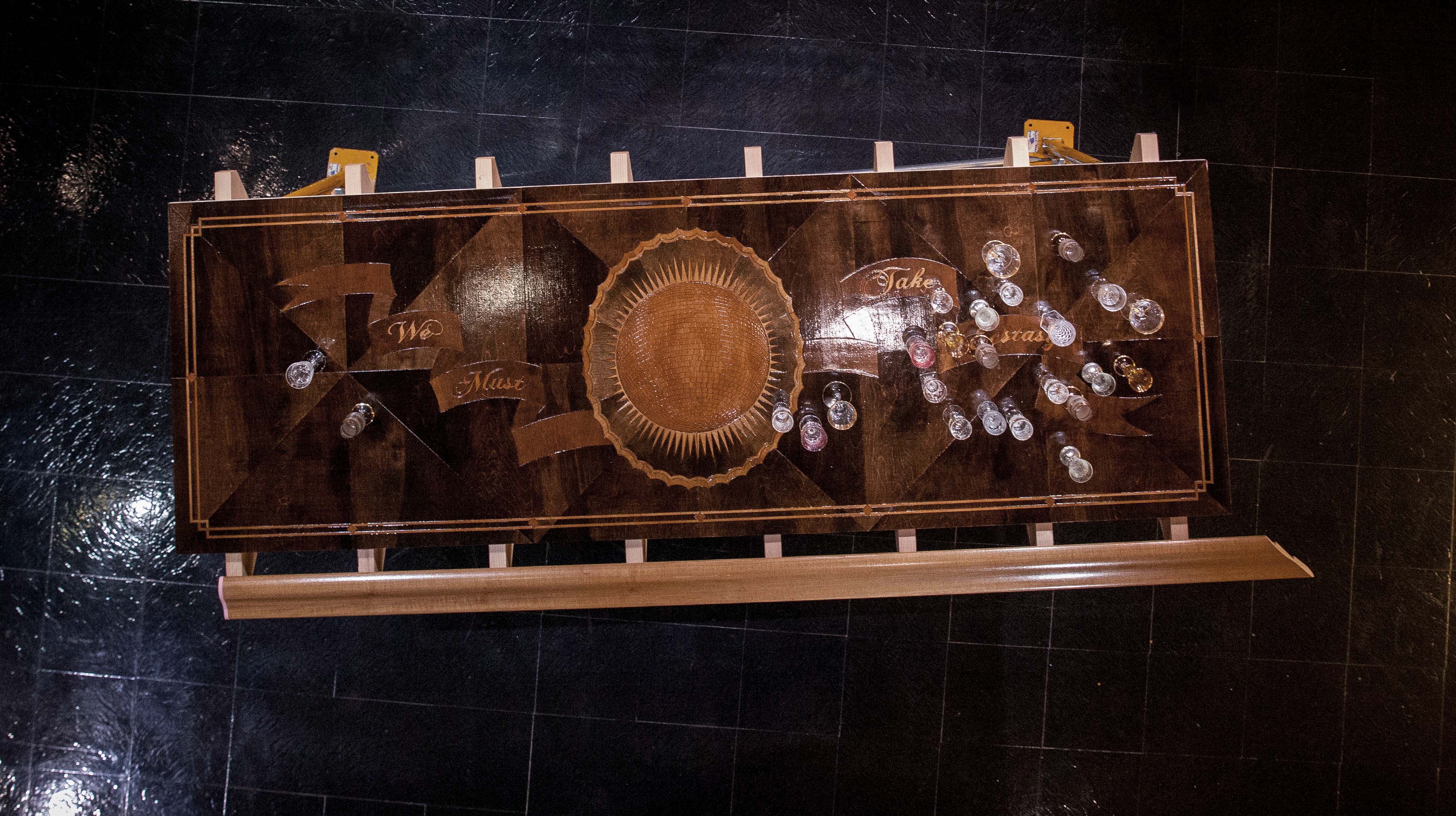
This work’s title is an assemblage of diverse
strategies and terms that LGBT and other marginalized
people have used over generations to mark the labor of making and naming home. Scaffolding operates here as a material metaphor for social
constructions broadly. Cordial glasses further call to mind shared spaces where people
come together to socialize. Ribboned text from the laser-cut marquetry bar top pronounces “We Must Take Ecstasy,” citing the conclusion of queer theorist José Esteban
Muñoz’s final book Cruising Utopia, in which the operative word is “Take” and the obligation
of the communal “We” is to actively construct for ourselves a commitment to ecstatic experience as a tool to work towards a utopic future.
laser marquetry, poplar bar rail, plywood, lumber, scaffold, cordial glasses,
velvet dress, velvet stanchions
54”h x 42”w x 120”l
2016
velvet dress, velvet stanchions
54”h x 42”w x 120”l
2016
Battering Ram for Sylvia, for Marsha, for Stormé
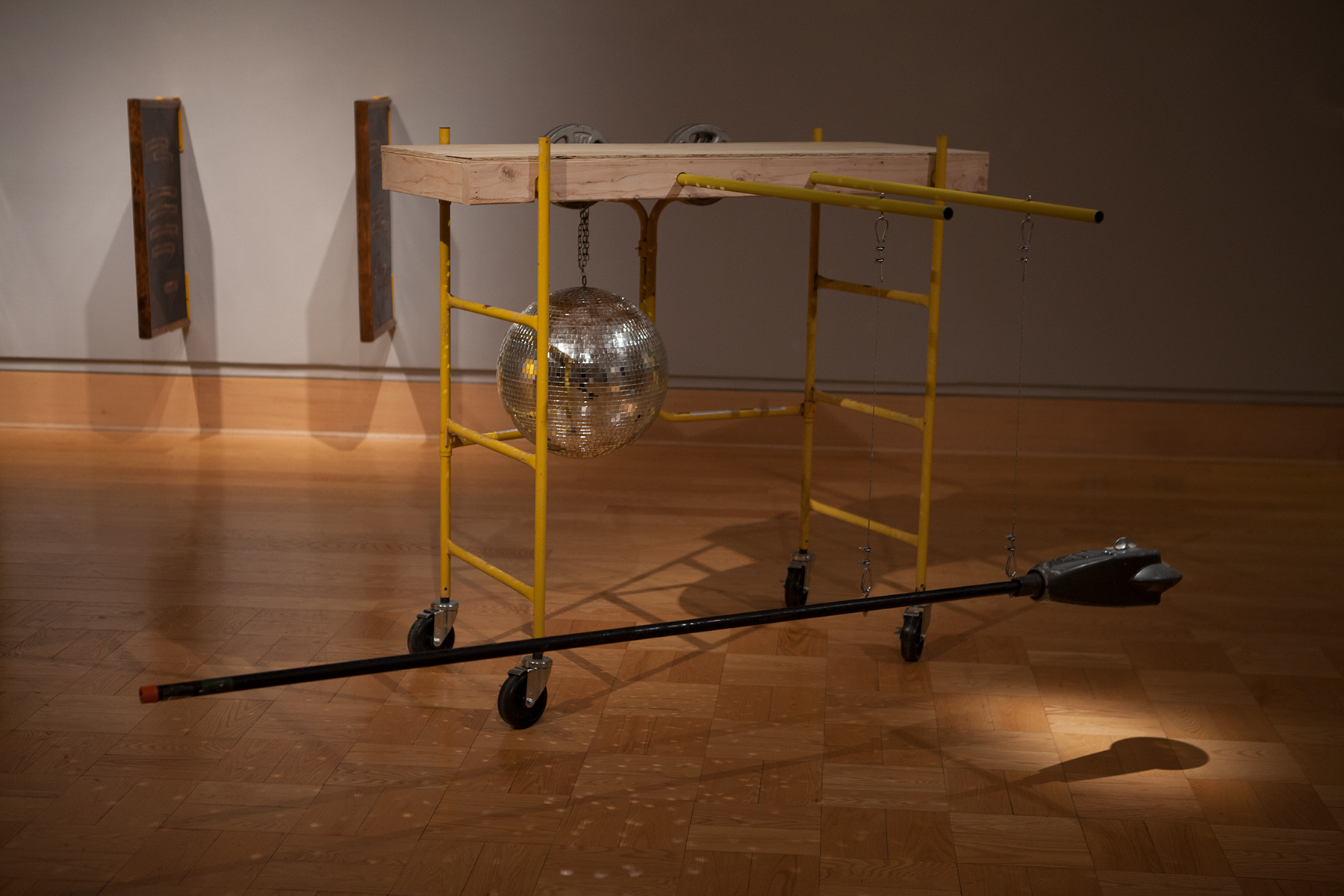
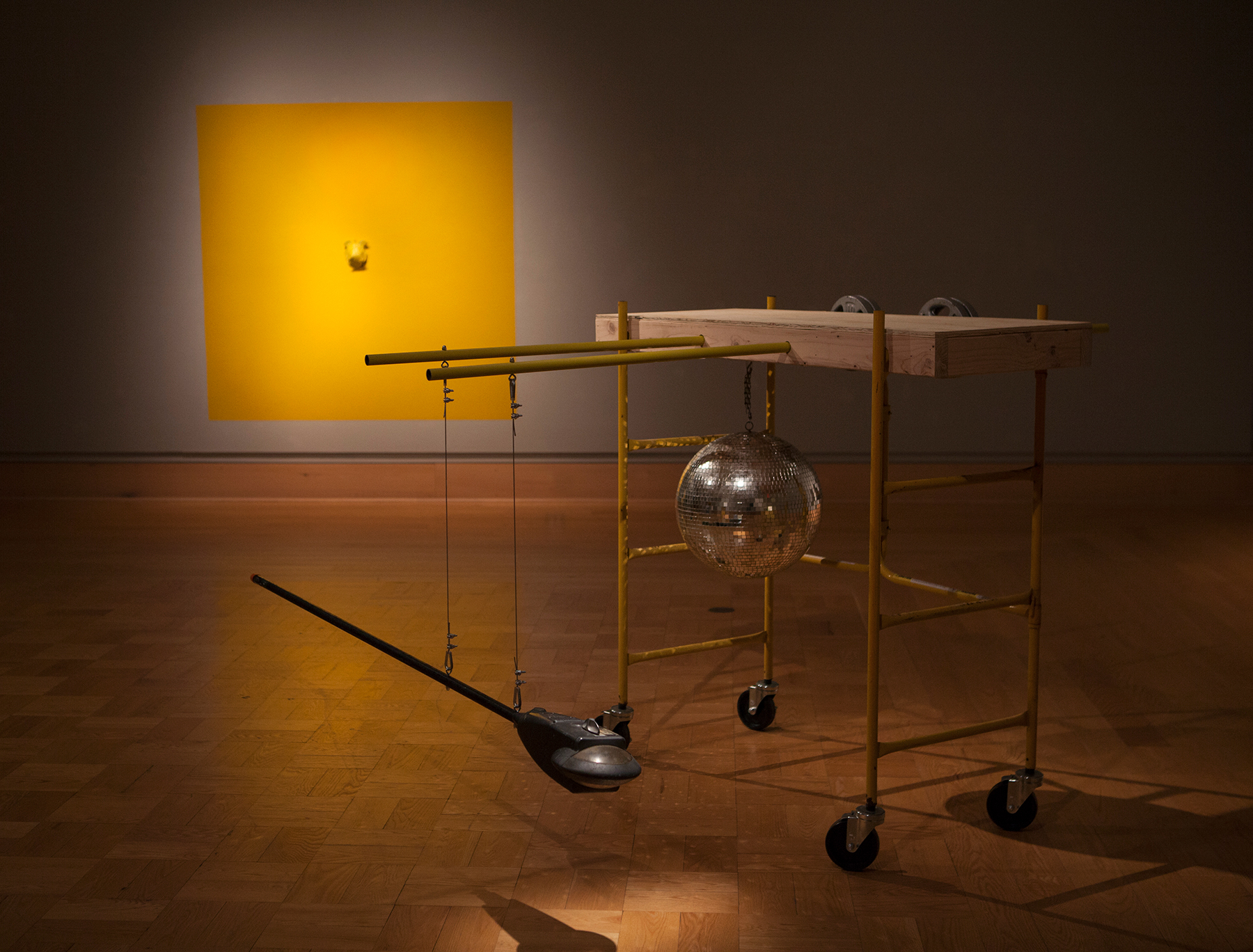
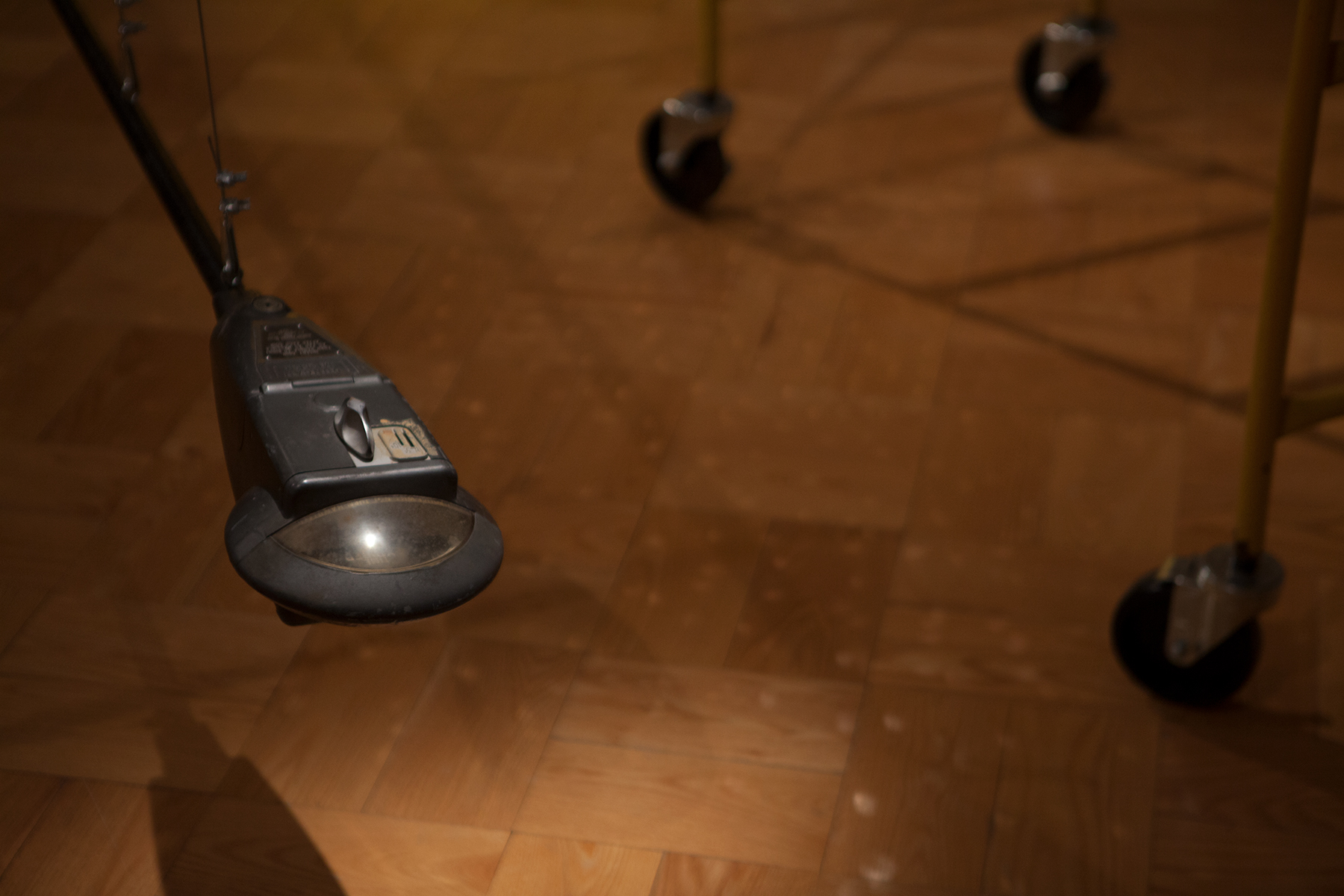
This work, named for three trans elders present at the
historic Stonewall Riots, reimagines components of that evening, including the
iconically ever-present disco ball, and the ripped from the sidewalk parking
meter that was subsequently used as a battering ram, into a yet more mobile and
powerful instrument for access.
parking meter, mirror ball, steel, lumber, hardware
60”h x 96”l x 84”w
2018
60”h x 96”l x 84”w
2018
Ready-to-hand
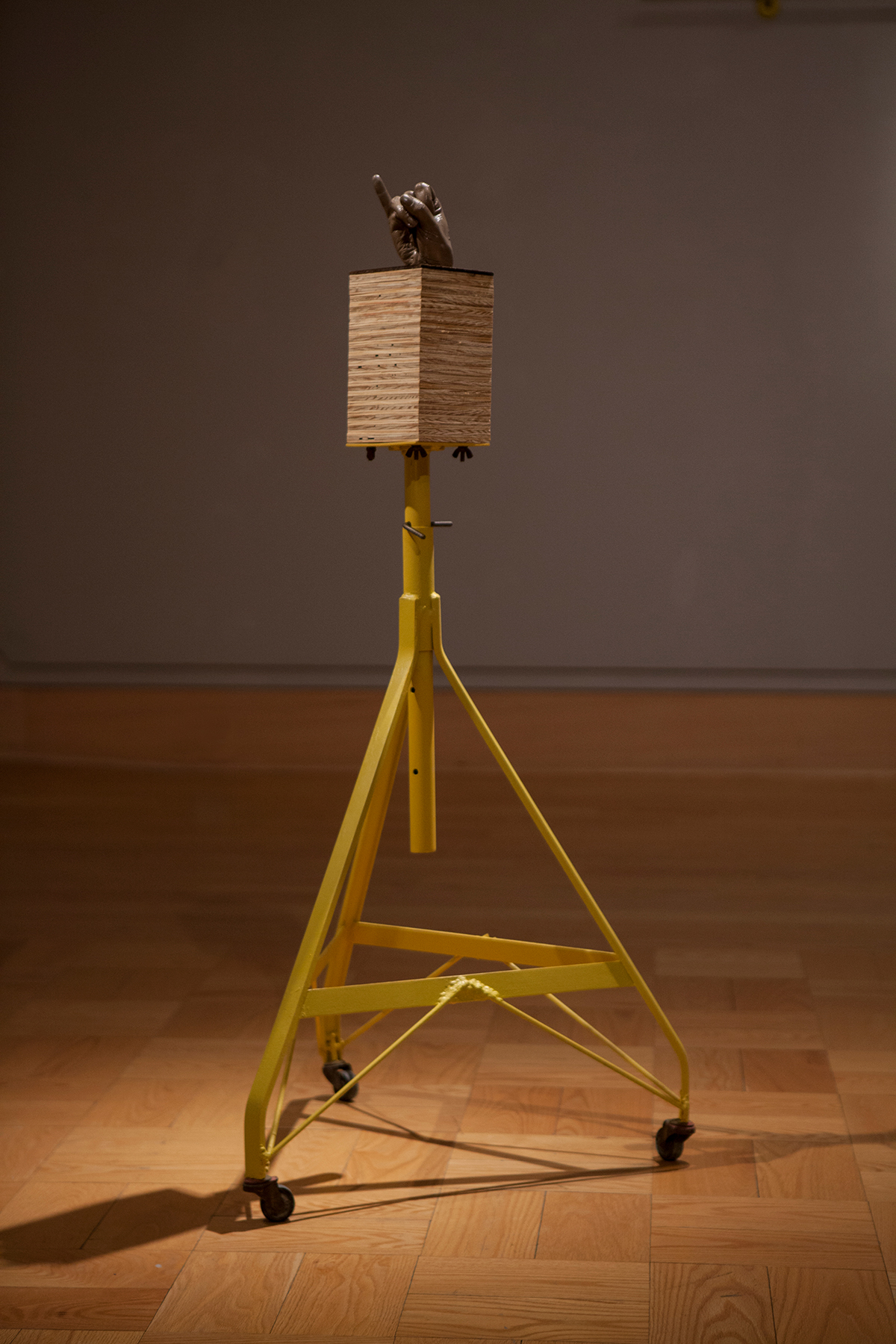
The sculptor's tool for modeling, topped by a feminine/ effeminately raised pinky finger, offers a transportable model for labor and subjectivity.
cast bronze, steel, plywood
48”h x 30”w x 30”d
2018
48”h x 30”w x 30”d
2018
Our response to the colonizer who makes us live on the periphery or not at all
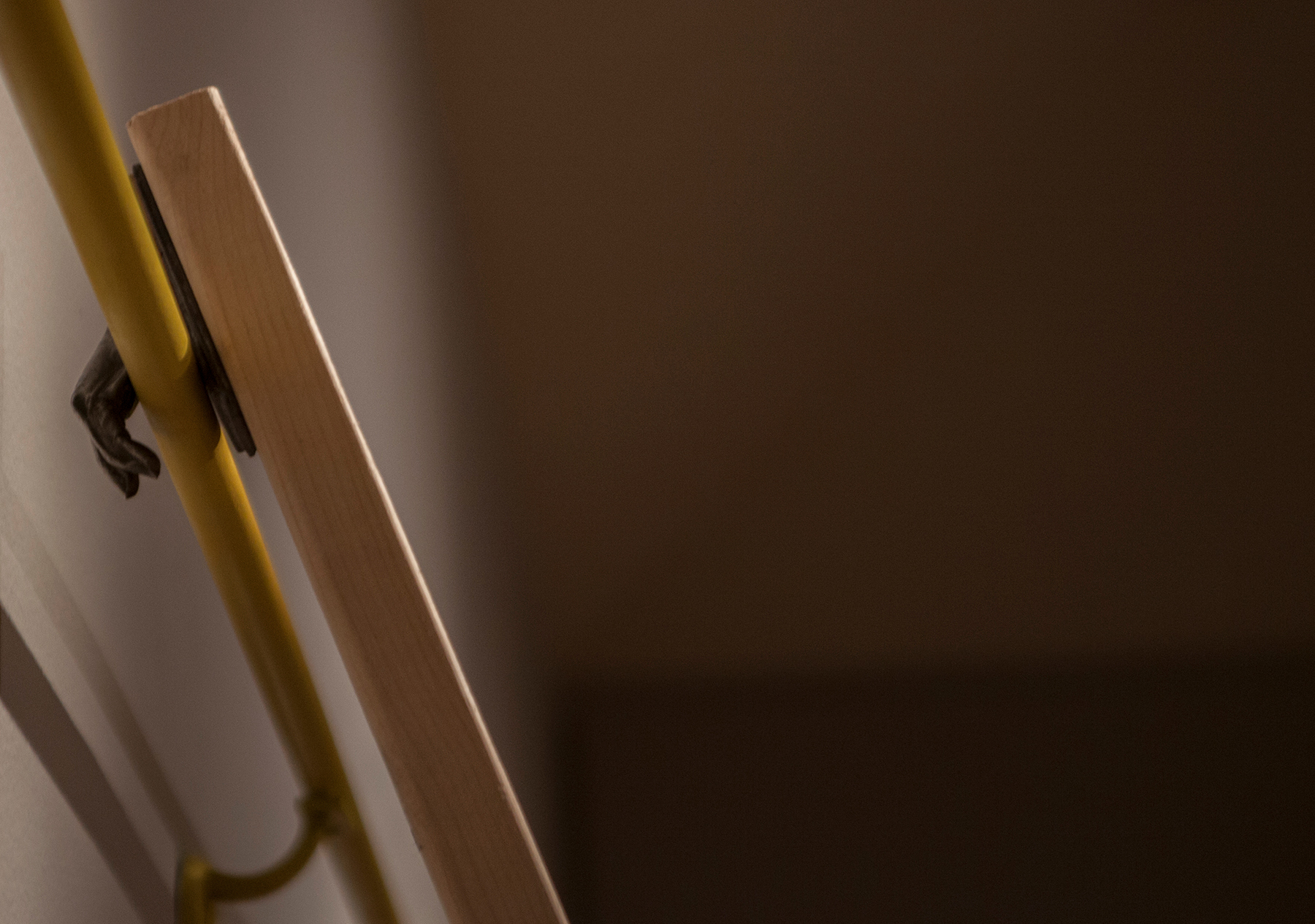
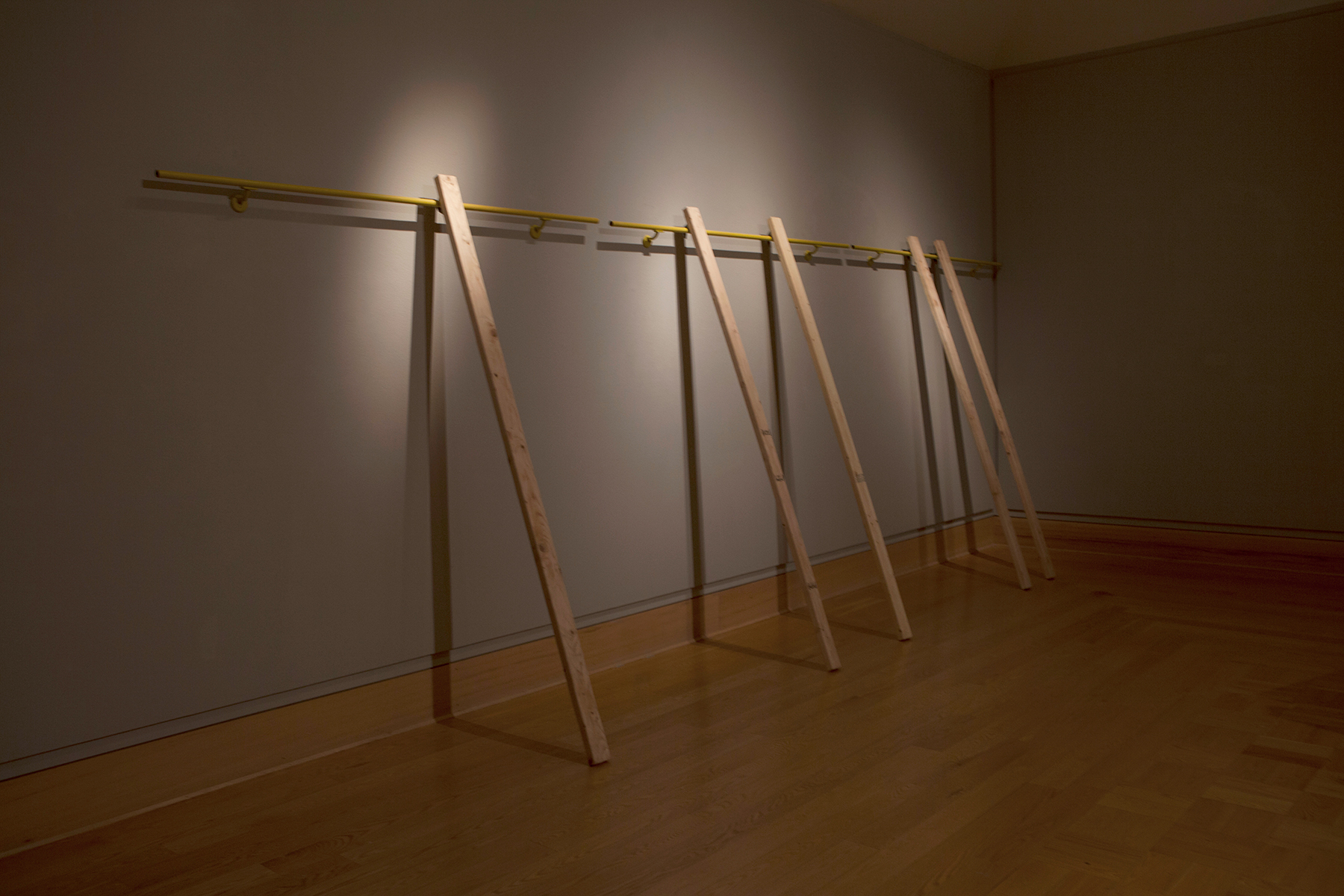
Five pairs of index and middle fingers point to the activism and penetrating analysis of archival structures by women who built and sustain the Lesbian Herstory Archives. Cast in iron from their fingers, these proxy library ladder brackets slide salaciously along a rail whose dimensions are unfixed. A quote from archives co-founder Joan Nestle is recast as the work’s title, further describing the archives politics around preserving access to lesbian history as a survival tactic, while drawing attention to the way that the work’s occupation of peripheral space in the gallery also encircles and frames the purportedly neutral white cube. Our response echoes the ladder and my permanent installation Archivist Fingers sited at the LHA in Brooklyn.
cast iron, steel, 2x4s
dimensions of rail variable to fit gallery, casts are life size
2018
dimensions of rail variable to fit gallery, casts are life size
2018
“You know it pisses you off, because like today, everything is so open and accepted and equal. Women, everyone goes to where they wear slacks, and I could just kick myself in the ass, because of all the opportunities I had that I had to let go because of my way. That if I was able to dress the way I wanted and everything like that I, Christ, I’d have it made, really. Makes you sick. And you look at the young people today that are gay and they’re financially well-off, they got tremendous jobs, something that we couldn’t take advantage of, couldn’t have it. It leaves you with a lot of bitterness too. I don’t go around to the gay bars much any more. It’s not jealousy, it’s bitterness. And I see these young people, doesn’t matter which way they go, whatever the mood suits them, got tremendous jobs, and you just look at them, you know, they’re happy kids, no problems. You say ‘God damn it, why couldn’t I have that?’ And you actually get bitter, you don’t even want to know them. I don’t anyway. ‘Cause I don’t want to hear about it, don’t tell me your success. Like we were talking about archives, you know where mine is, scratched on a shit-house wall, that’s where it is. And all the dives in Buffalo that are still standing with my name. That’s it, that’s all I got to show.” Kennedy, Elizabeth L., and Madeline D. Davis. Boots of Leather, Slippers of Gold: The History of a Lesbian Community. Penguin Books, New York, 1994.
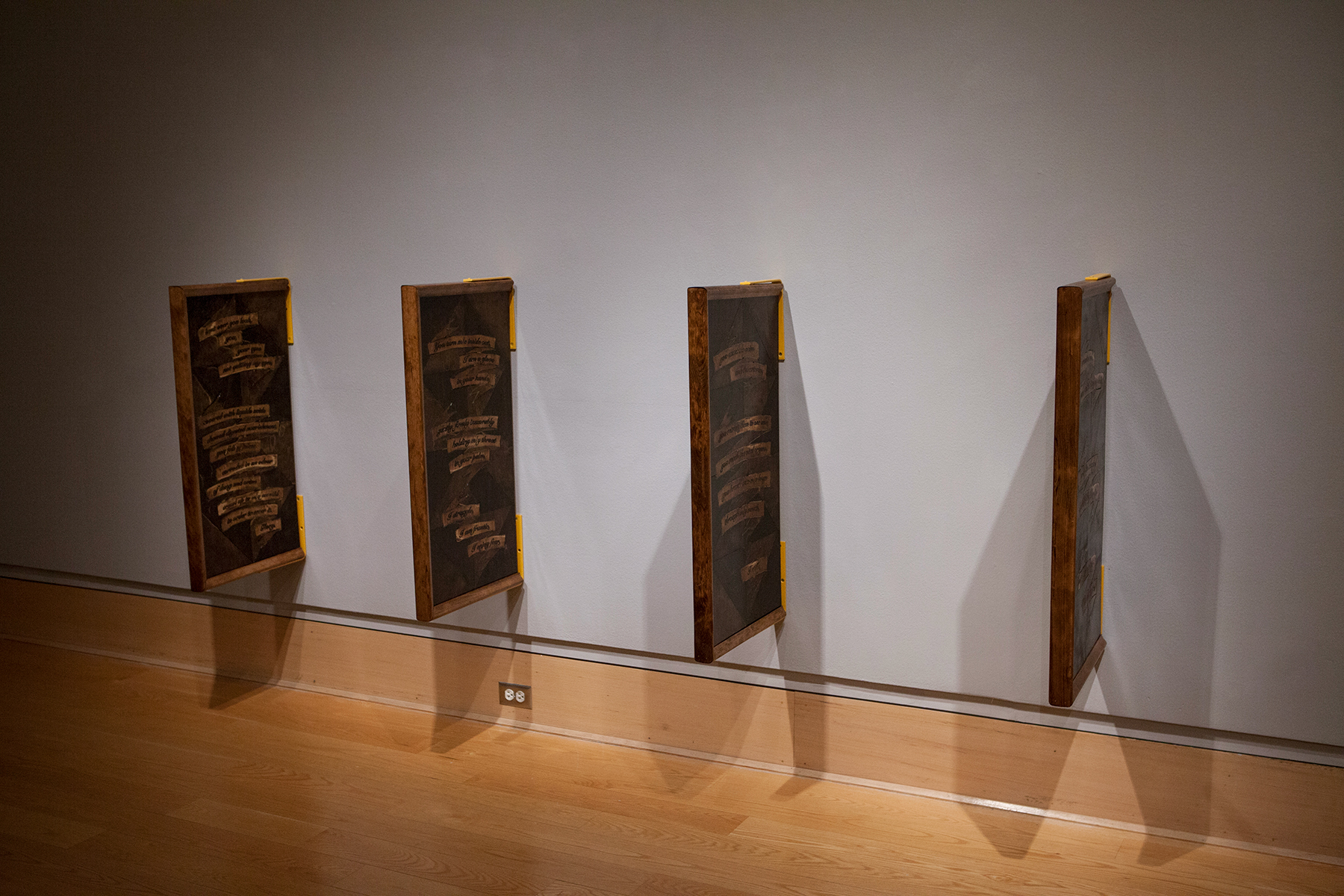
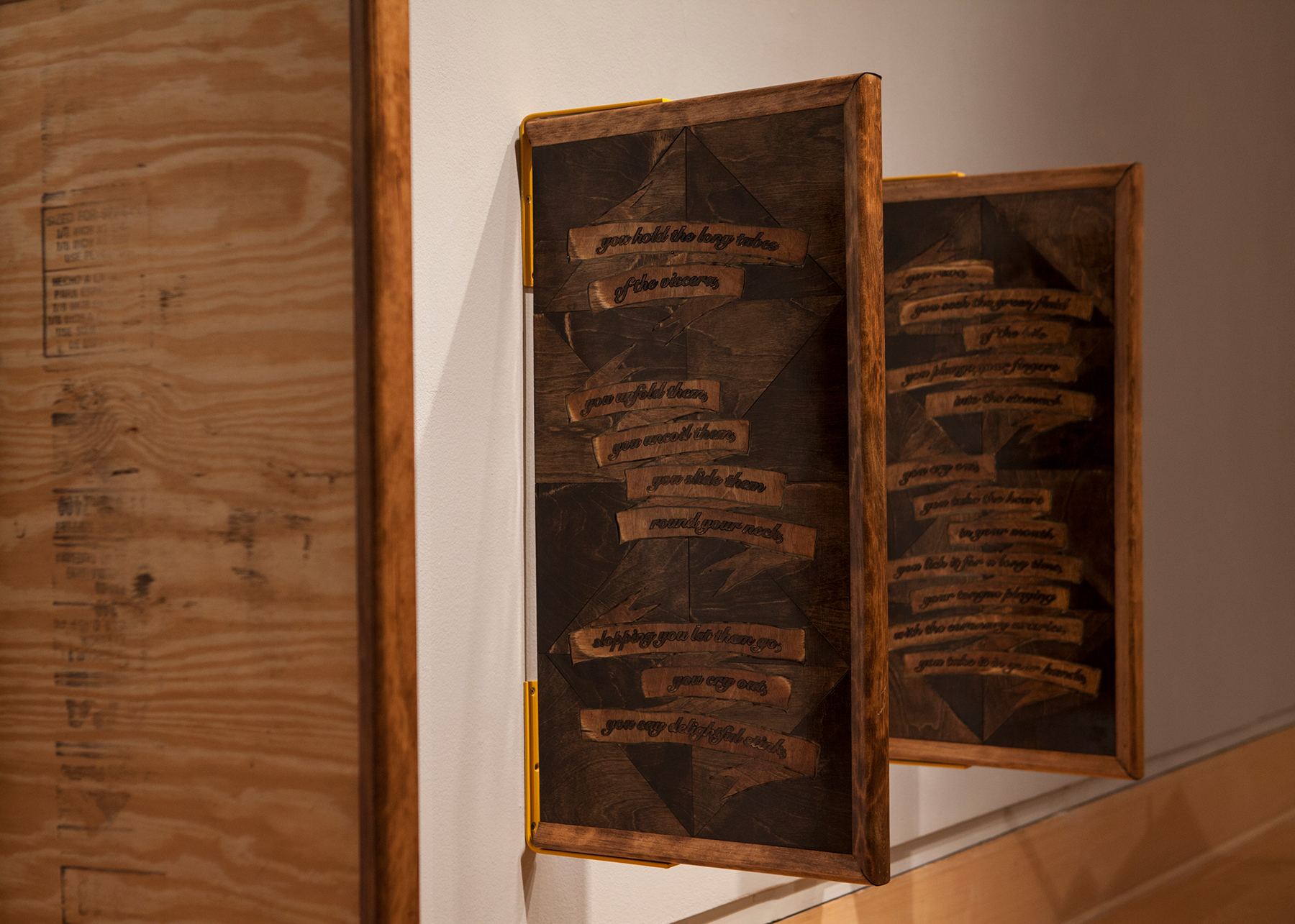
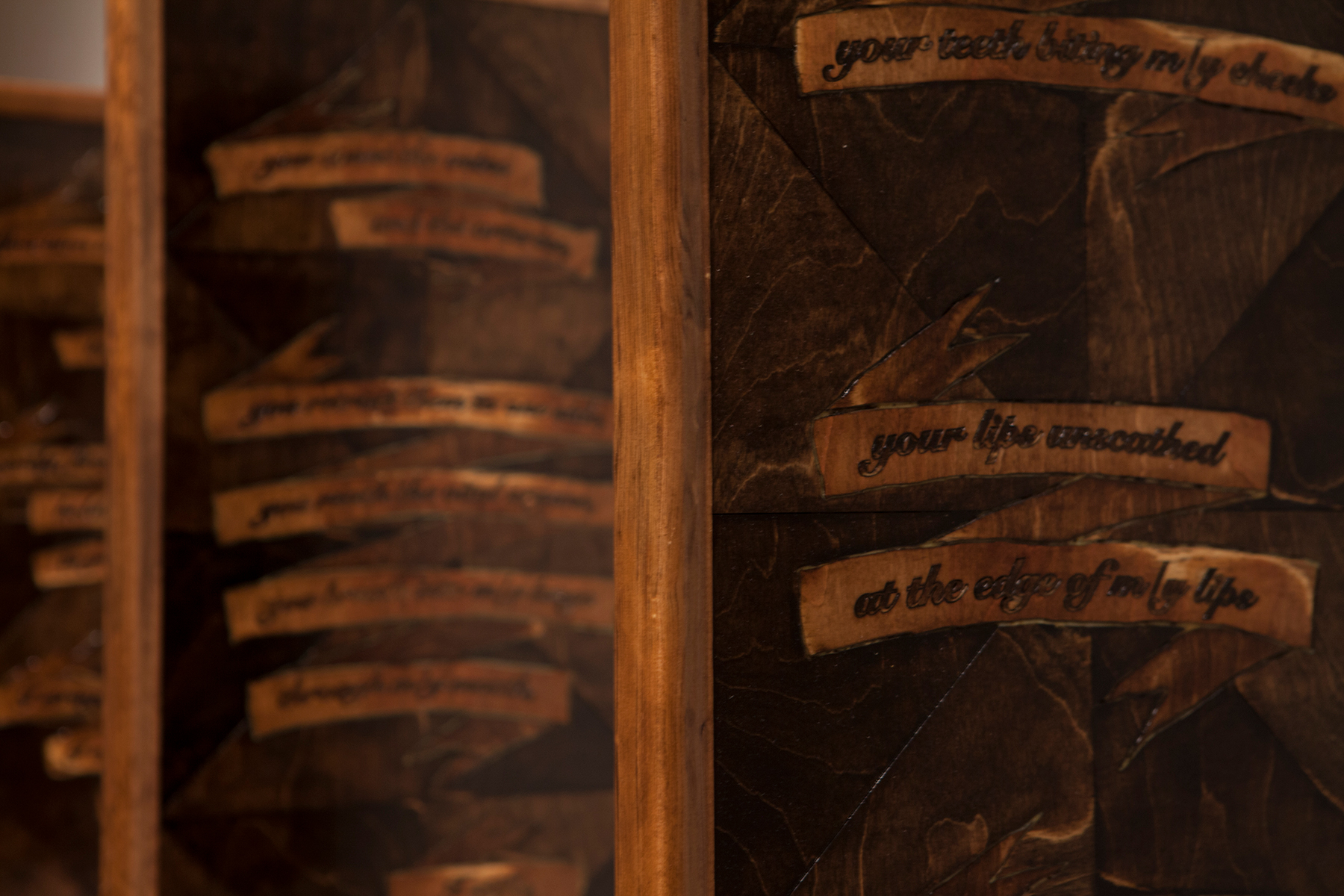
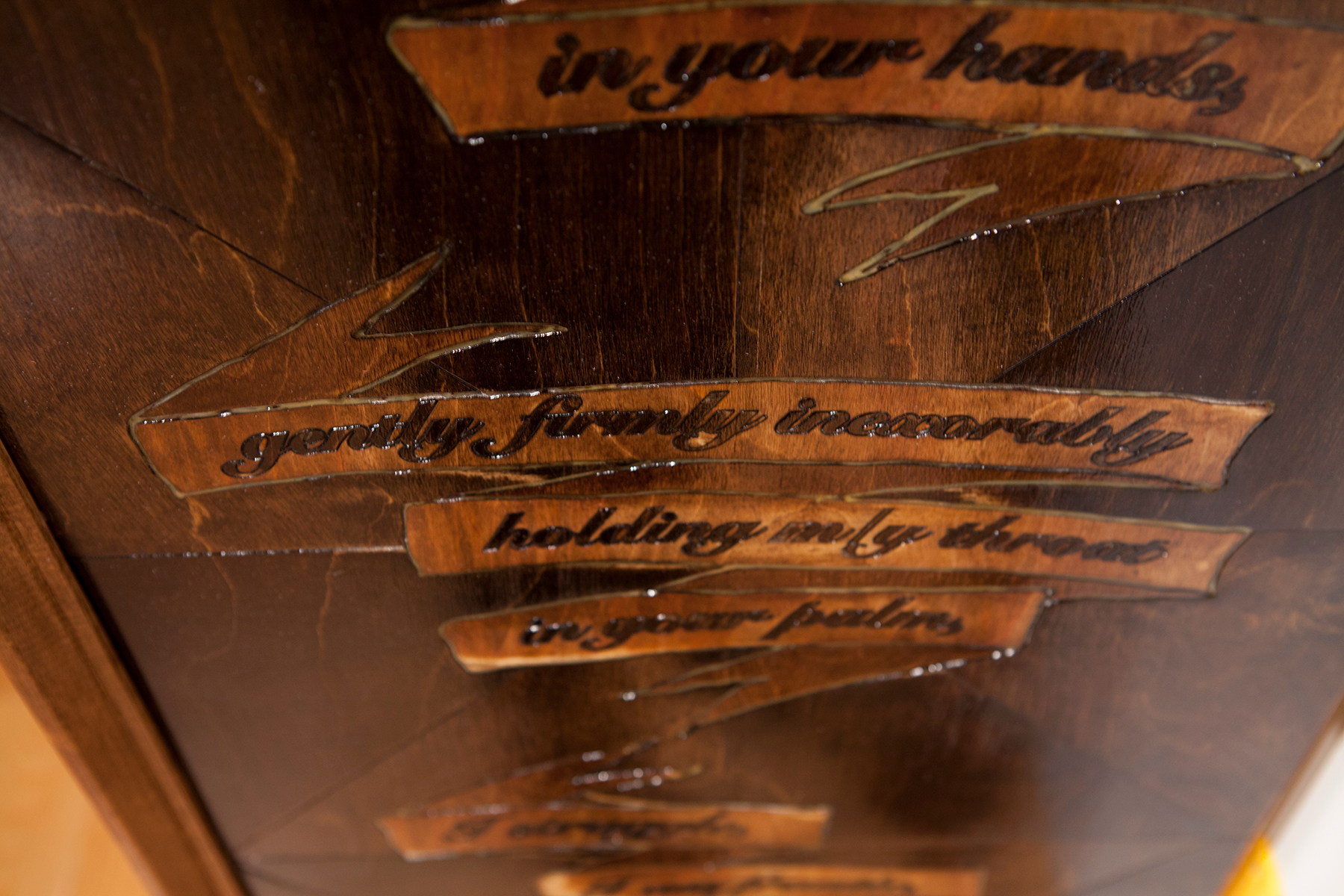
Ribboned text excerpted from an English translation of Monique Wittig’s The Lesbian Body scrolls across a series of panels whose scale and installation follow the conventions of urinal dividers. Reading Wittig’s text requires an enmeshed viewer to adopt a sidewards-glancing stare, condensing gender imperatives associated with cruising, and conjuring desirous looking. Laser-marquetry operates as a variation of wood-carving common to dive bathrooms, paying homage to Sandy, the title’s narrator, whose concept of a rhizomatic archive is generated out of resilience and refusal.
laser marquetry, fir rail, plywood, hardware
4 panels, each 18”w x 34”h x 3”w; installation dimensions 52”h x 108”w x 18”d
2018
4 panels, each 18”w x 34”h x 3”w; installation dimensions 52”h x 108”w x 18”d
2018